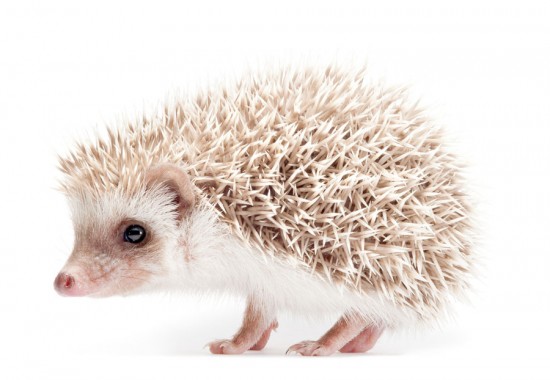Worms are horrible parasitic creatures that cause most of us to cringe at their very mention. Not only do they look disgusting, but the idea that they can live in our pets stomachs is a highly off putting prospect, and particularly when you bear in mind that they can be harmful to humans in some cases too.
There are many different types of worms too that can infest our pets and cause them a range of problems, and each of these can cause slightly different symptoms and respond to better to slightly different treatments. Here we will look at four of the most common types found in cats and dogs.
Tapeworms
Tapeworms are the best known form of worms that can affect our pets and this is because they are so common. Tapeworms actually use fleas initially as an intermediate host and are this way carried over to the cats or dogs when they groom themselves. Tapeworm can be identified because they are made from a 'chain' of smaller segments, each of which is filled with hundreds of eggs and which can break away from the main body of the worm. Disgustingly they can grow up to a foot in length.
The main sign of tapeworm are the rice-like egg segments appearing in the stool, while worse infestations can cause vomiting and bleeding as well. It's a good idea to treat your pet for tapeworm whenever you treat them for fleas.
Roundworm
Roundworm will affect almost all pups and kittens when they're in their infancy because they are passed through their mother's milk. Initially they come from contaminated soil and infected carcasses and they are likely to cause you抮e pet to develop a pot belly and a duller coat. Other symptoms include diarrhoea, coughing and mucus in the stool. If you look closely you may be able to see the worms in the stool or vomit, though not always.
Hookworms
Hookworms are one of the more serious types of infestation and may cause serious anaemia (low iron). The symptoms are again diarrhoea, weight loss, vomiting and restlessness and in young kittens this can even be fatal. These worms are not visible in the stool, so if your pet is demonstrating any of these symptoms you should take them to a vet who can identify the problem using microscopic examination. Hookworm come from the faeces of other animals, so it's important to keep your cats and dogs away from manure when you're walking them and to clear any up that you find in the garden.
Heartworms
Heartworms are a parasite of the blood that get transmitted via mosquitoes. The tiny insects transfer baby worms when they bite, and these then travel through the body until they reach the heart and shed microfilaria. Infections are often hard to spot, but in severe cases this can lead to reduced blood circulation and ultimately impact heart function. One sign may be intermittent vomiting, and it's important to keep an eye out for any abnormal behaviour from your pets as heartworm can in severe cases prove fatal if untreated.

 Cocker Spaniel Hereditary Health And Genetic Diversity
Cocker Spaniel He
Cocker Spaniel Hereditary Health And Genetic Diversity
Cocker Spaniel He
 The African Pygmy Hedgehog
The African Pygmy
The African Pygmy Hedgehog
The African Pygmy
 Introduction To Polo
Introduction To P
Introduction To Polo
Introduction To P
 Leave It! Five Simple Steps To Training Your Dog Away From Your Possessions
Leave It! Five Si
Leave It! Five Simple Steps To Training Your Dog Away From Your Possessions
Leave It! Five Si
 Can Dna Testing Help To Diagnose Certain Canine Diseases?
Can Dna Testing H
Can Dna Testing Help To Diagnose Certain Canine Diseases?
Can Dna Testing H